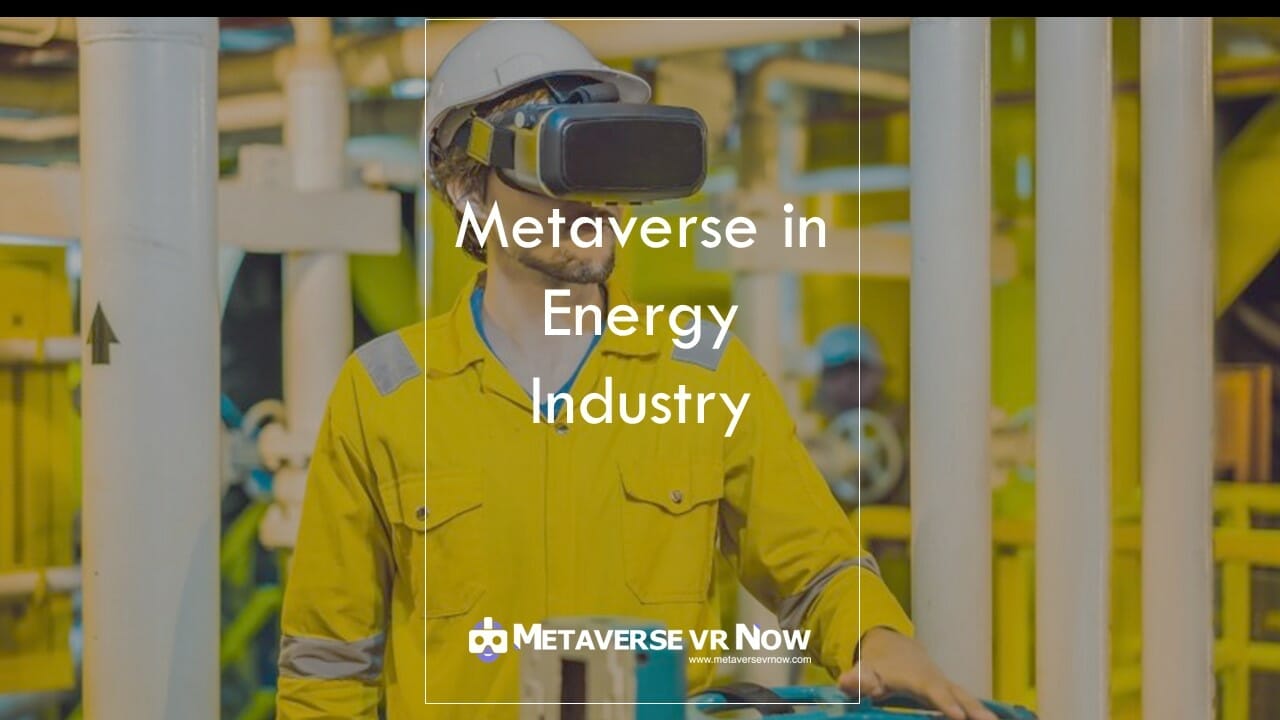The energy industry is in the midst of a significant transformation as new technology continues to disrupt traditional approaches. One area that is becoming increasingly prominent is using the metaverse in the energy industry. Metaverse technologies offer unique opportunities to streamline processes, increase efficiencies, and reduce costs. This article will explore the practical applications of the metaverse in the energy industry, discussing how it can be used to improve business operations and create a more sustainable future.
What is Metaverse?
Metaverse, otherwise known as the “metaverse platform” or “metaverse framework,” is a blockchain-powered virtual world ecosystem. It provides users with an array of services, including digital asset creation and trading, financial services such as loans and investment funds management, and identity authentication and verification. The Metaverse platform is becoming increasingly popular in the energy industry due to its scalability and cost-effectiveness.
The energy industry can greatly benefit from using the Metaverse platform for various purposes, from data collection to asset management. For example, businesses can use the Metaverse platform to track energy usage across multiple facilities in real time. This would help them improve their operations by finding opportunities for efficiency gains and reducing wastefulness.
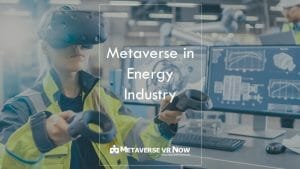
Energy Industry Overview
The energy industry is always looking for innovative ways to tackle the world’s energy needs. One of the latest advances in this arena is metaverse technology, which has the potential to revolutionize how we create and use energy. Metaverse technology is a virtual simulation environment where people can explore digital content and interact with each other in cyberspace. It has already been used in many different industries, such as education and entertainment, but now its potential is being explored within the energy sector.
Metaverse technology offers an exciting new way of managing resources and connecting energy users with providers. This could lead to more efficient production, distribution, storage, and consumption of electricity or fuel-based resources while also lowering costs by reducing waste.
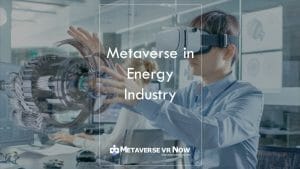
Benefits of Metaverse in the Energy Industry
The energy industry is quickly embracing the possibilities of metaverse technology, which has revolutionized how businesses interact with customers and create immersive experiences. Metaverse technology allows companies in the energy sector to create virtual reality (VR) simulations, 3D-rendered environments, and interactive customer service experiences.
Metaverse technology provides many advantages for the energy industry. It can help streamline tedious administrative tasks, such as record keeping and data analysis, allowing engineers to spend more time on innovative projects that benefit society. Additionally, it enables customers to access information about their utility usage or services available from a particular company in real time through interactive applications. Moreover, virtual reality simulations can help train personnel faster than traditional methods; they also reduce the costs associated with training programs since there is no need for physical infrastructure or travel expenses.
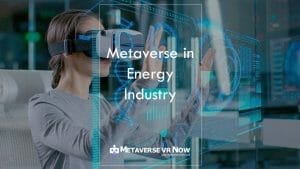
Benefits of Metaverse in the Oil and Gas Industry
Metaverse is a growing technology that oil and gas companies in the energy industry are quickly adopting. This virtual reality platform provides various benefits to the oil and gas industry, such as increased safety, improved efficiency, cost savings, and enhanced communication.
Using Metaverse in the energy industry can help reduce the risk associated with field operations by allowing remote teams to collaborate on tasks without physically being present in hazardous work environments. It also enables production personnel to access real-time data from any location, leading to improved efficiency and cost savings. Additionally, it allows for more effective communication with subcontractors and suppliers across multiple locations simultaneously.
Metaverse has tremendous potential to revolutionize how oil and gas companies operate within the energy industry.
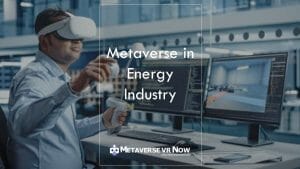
Benefits of Metaverse in the Renewable Energy Industry
The renewable energy industry has been rapidly expanding in recent years as nations work to become greener, and the use of metaverse technology is helping to further that growth. Metaverse, a virtual universe or simulated reality, can be used in many aspects of the energy industry to increase efficiency and cost savings.
Metaverse technology can be used to manage supply chains by tracking materials from sourcing locations all the way through production and out into distribution channels. This allows for better transparency regarding ensuring that clean energy resources are being properly sourced, so they don’t come from non-renewable sources. Additionally, using blockchain technology within metaverse applications, transactions are secured with greater accuracy while providing faster speeds than traditional payment methods.
Metaverse can also be utilized for training purposes to increase safety standards throughout the renewable energy industry.
Through the use of virtual reality, workers can be trained on how to operate equipment safely in a hazardous environment. This will improve safety and efficiency while also saving time and money. Metaverse is developing an independent blockchain that utilizes the technology behind Bitcoin.
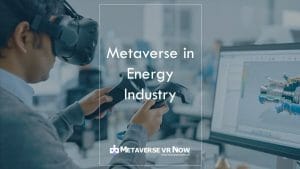
Benefits of Metaverse in the Utility Industry
The modern energy industry is embracing the concept of a metaverse, a shared virtual space where users can meet and interact. Metaverse offers numerous benefits for the utility industry, from better customer experience to improved operational efficiencies.
Metaverse technology helps energy companies create a digital twin of their operations, including all aspects of their physical infrastructure and assets. This allows companies to optimize their resources in real-time and make decisions quickly. For example, energy providers can access data from various sources, such as weather forecasts or electricity demand patterns, to adjust supply accordingly. This technology also helps reduce inefficiencies by automating manual processes like scheduling maintenance or analyzing system performance.
Furthermore, the metaverse provides an opportunity for customers to engage with utilities more effectively by allowing them to monitor and control their own usage remotely through connected devices like smartphones or smart home systems.
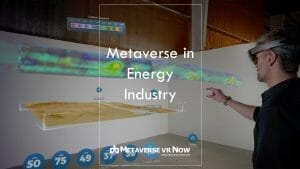
Challenges of Implementing Metaverse in the Energy Industry
The energy industry is one of today’s most essential and impactful sectors. As technological advances continue to shape our lives, companies in this sector must stay on top of new trends to remain competitive. One such trend is the emergence of metaverse technology, which has the potential to revolutionize how energy companies conduct their operations and processes. However, many organizations have found implementing metaverse in the energy industry presents certain challenges.
Metaverse technology allows companies to digitally simulate physical or virtual environments with 3D images and data sources. In addition, it allows for real-time collaboration between multiple users from different locations and online transactions within a digital marketplace. This could help streamline processes within the energy industry by reducing costs associated with infrastructure maintenance, transportation, and storage of assets.
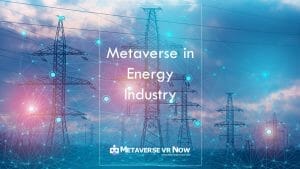
Case Studies: Real-World Examples
Case studies have long been used to provide real-world examples of how various industries use new or advanced technology. In the energy industry, case studies can show us how emerging technologies like the metaverse are changing how we interact with energy and its associated services.
Metaverse is a virtual world platform that allows users to view, create, and interact with digital environments. It has become increasingly popular in the energy sector as it offers unique opportunities for companies to explore new ways of doing business. For example, utilities can use metaverse simulations to simulate real-world scenarios such as power outages or other disruptions. They can also use metaverse applications to develop new customer experiences or even offer innovative products like renewable energy options.
Using metaverse by energy companies is helping them better understand their customers’ needs while also providing an opportunity for them to explore innovative solutions.
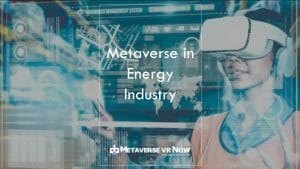
Technology Adoption & Future Outlook
The energy industry is at the forefront of technology adoption, and the future looks promising. The possibilities are endless with the introduction of the metaverse, a digital universe that facilitates real-time user communication and interaction. Metaverse is gaining traction in many sectors, such as finance, healthcare, education, and now energy.
The energy industry is trying to incorporate virtual reality into its processes to create an immersive user experience. For example, leveraging voice control commands for smart homes can be used to monitor electricity usage across multiple devices in an efficient way. This type of technology allows for more personalized service applications for customers, which will help drive customer loyalty and increase revenues for energy providers. Additionally, it can enable more accurate data analysis to improve operational efficiency within an organization.
Digital Twin: Technology Adoption & Future Outlook
Digital Twin technology is revolutionizing the energy industry by providing real-time data and insights into an organization’s operations. A digital twin is a virtual model of a physical asset that includes its engineering, operational, and environmental context. With this technology, energy companies can instantly access the performance of their assets from any location in the world with just one click. Metaverse, another revolutionary technology, integrates digital twins with artificial intelligence (AI) and machine learning (ML). This enables businesses to quickly analyze massive amounts of data to make better decisions faster than ever before. Metaverse has been widely adopted in the energy industry due to its ability to accurately predict behavior based on historical events and identify potential risks in time for actionable steps to be taken.
The Innovations in the Energy Industry
The energy industry is undergoing rapid transformation due to the emergence of innovative technologies and ideas. In recent years, the concept of a metaverse in the energy industry has gained traction, offering a new way for organizations to create virtual versions of existing energy systems. This technology can be used to simulate and analyze various scenarios, helping companies make better decisions about their energy operations. A metaverse is essentially an online version of reality that uses artificial intelligence (AI) and machine learning (ML) algorithms to combine physical components with virtual ones into a single platform. With this technology, users can interact with the data, such as electricity use or renewables production, in real time via digital simulations. This offers unprecedented control over how they use and manage their energy resources.
Energy Central and Metaverse in the Energy Industry
The energy industry is rapidly evolving with the introduction of new technologies and methods. One such technology that shows promise for revolutionizing the energy industry is the combination of Energy Central and Metaverse, which are two emerging platforms in this field.
Metaverse is an open-source platform that uses blockchain-based technologies to facilitate development in the energy industry. It provides an infrastructure for distributed ledger transactions and access to data sharing, analytics, and machine learning applications. On the other hand, Energy Central is a cloud-based platform that helps companies manage their energy operations while leveraging real-time insights into their operations’ performance. Together, these two platforms form a powerful combination that could provide numerous advantages to players in the energy sector, such as improved efficiency, cost savings, increased transparency, and enhanced security.
Potentials of Energy Savings Using Metaverse
The energy industry is making great strides in energy efficiency, and new technology may be the key to further progress. Metaverse enables businesses to maximize their energy savings by optimizing their assets and reducing operational costs. Through its use, companies can reduce waste and generate substantial cost savings.
Metaverse connects data from multiple sources, such as sensors, meters, databases, control systems of industrial processes, and other devices, into one unified platform. This data then allows for predictive analytics that helps identify trends and potential areas for improvement. By leveraging this information, organizations can identify opportunities for improvement or implement specific strategies to reduce costs associated with production or operations. In addition, the metaverse can assist in understanding the most efficient ways of using resources such as fuel or electricity while providing detailed insights into how these resources are used throughout an organization’s entire system.
Metaverse Can Improve Efficiencies and Operational Costs
The Metaverse is a technology that has the potential to revolutionize the energy industry. It offers a virtual 3D environment where users can interact with objects, people, and data in real time. With its ability to bridge the physical and digital worlds, it promises to improve efficiencies and reduce operational costs for businesses in the energy sector.
The use of the metaverse will enable companies in the energy industry to optimize their operations by allowing them to collaborate remotely more effectively. For instance, they can hold meetings in an immersive environment or create lifelike simulations to test new strategies quickly and cost-effectively. Additionally, with its interactive features, such as virtual reality (VR), augmented reality (AR), and artificial intelligence (AI) capabilities, businesses can analyze data faster than ever before and make decisions based on real-time information.
Metaverse and Energy Synergy
The metaverse is changing the energy industry as it offers new opportunities for synergy and collaboration. It allows teams to coordinate in real time without having to be physically present. The metaverse can provide unprecedented intelligence and insight into the energy sector by connecting many sources of energy information and resources.
This synergy between the physical world and virtual space is becoming increasingly important as more businesses seek to reduce emissions while continuing to meet their customers’ needs. The metaverse can enable faster decision-making by providing access to current data from multiple sources in a single environment. This means that companies can make decisions quickly based on accurate data from various points along their supply chain or production process. Additionally, companies can rapidly identify areas where they can have a greater impact through increased efficiency or reduced emissions.
Building Blocks of the Energy Industry
The energy industry is undergoing a profound transformation as it integrates cutting-edge technologies and innovative approaches to the production and distribution of energy. As part of this evolution, the metaverse is quickly becoming an essential building block for today’s energy sector.
A metaverse is a simulated virtual world that serves as an immersive platform for businesses and consumers alike. It enables users to interact with each other in real-time through 3D environments, allowing them to visualize data, create simulations, and share content like videos or images. This allows energy companies to develop more efficient production and distribution methods while maintaining safety standards. Moreover, with the use of avatars and digital twins in a metaverse environment, individuals can gain insight into the performance of different components within their systems or even experiment with new ideas without putting any physical equipment at risk.
The Future of the Energy Sector is Metaverse
The future of the energy sector is looking ever more connected and interactive as technology advances. With the rise of the metaverse, a decentralized computing platform that enables users to interact within virtual reality, the energy industry could be at the cutting edge of innovation.
Metaverse can create various opportunities for the energy sector, including connecting consumers more than ever with their local utility companies by using AI-driven bots, providing renewable energy options tailored to specific user needs and preferences, and introducing data-driven solutions to optimize power grids. All this can be done without compromising efficiency or security due to blockchain’s distributed ledger technology.
By leveraging metaverse in the energy industry, we can expect greater transparency in pricing models for electricity and improved customer service from providers.
Final Thoughts: Practical Applications of Metaverse in the Energy Industry
In conclusion, metaverse offers the energy industry a powerful and dynamic platform to bolster their operations, improve customer service, and increase efficiency. With its potential for data collection and analysis, businesses can better understand their current operations while also using predictive analytics to identify new opportunities in the future. Furthermore, businesses can take advantage of the secure environment, use virtual tokens for transactions, and access various applications available in the metaverse.
The metaverse has incredible potential to revolutionize the energy industry. Its ability to provide an immersive and interactive 3D space, combined with analytics, AI, and machine learning, can help energy companies better manage their operations and resources. It also offers the potential for innovative automation processes, cost savings, and improved safety standards. In addition, it provides a platform for collaborative innovation between stakeholders in the energy industry.

